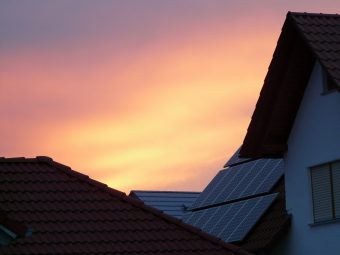
Energy storage allows excess power collected by solar panels to be stored for later use, addressing the intermittent nature of solar power. It’s a concept that has already won over policymakers, electric utilities, and some automakers.
Tesla CEO Elon Musk has moved to consolidate the automaker and his SolarCity company in order to better facilitate the deployment of energy-storage-backed solar power. Many individual homeowners also dream of being able to cut their ties to the grid by installing solar panels and battery packs.
But according to one study, the environmental reality of home energy storage may be less appealing than some of these positive predictions indicate. Actually has a somewhat higher environmental impact than connecting solar panels to the grid, according to a new University of Texas Energy Institute study. Researchers examined energy use at the well-known Pecan Street project in Austin, Texas.
Pecan Street is a privately-run green housing development in the Texas capital city that is used to test renewable-energy and so-called smart-grid technologies. Out of 100 houses equipped with solar panels, researchers found that those with energy-storage systems used 8 to 14 percent more electricity than those that switched to the grid at night.
Houses with energy storage consumed more energy than those with standalone solar panels in part because the storage systems consume energy whenever they charge or discharge. That extra energy increases annual energy consumption by about 324 to 591 kilowatt-hours, researchers found.
They also found that home energy storage indirectly increases emissions of carbon dioxide, sulfur dioxide, and nitrogen dioxide through the Texas energy grid, which relies primarily on fossil fuels.
This is due to both increased energy consumption from “storage inefficiencies,” and the effect of storage on what time of the day a house draws power from the grid, researchers said.
However, “solar combined with storage is still cleaner than having no solar at all,” Robert Fares, co-author of the study, noted. Researchers found that energy storage reduced peak grid demand by 8 to 32 percent, and reduced the magnitude of solar-power contributions to the grid by 5 to 42 percent.
This indicates utilities could reduce the amount of generation and delivery capacity they require if more buildings had local energy storage, researchers said. So even if energy storage proves to be somewhat less efficient for individual homeowners, it may still be an important factor for the utilities that supply them with their remaining power over the grid.
Source: greencarreports.com



